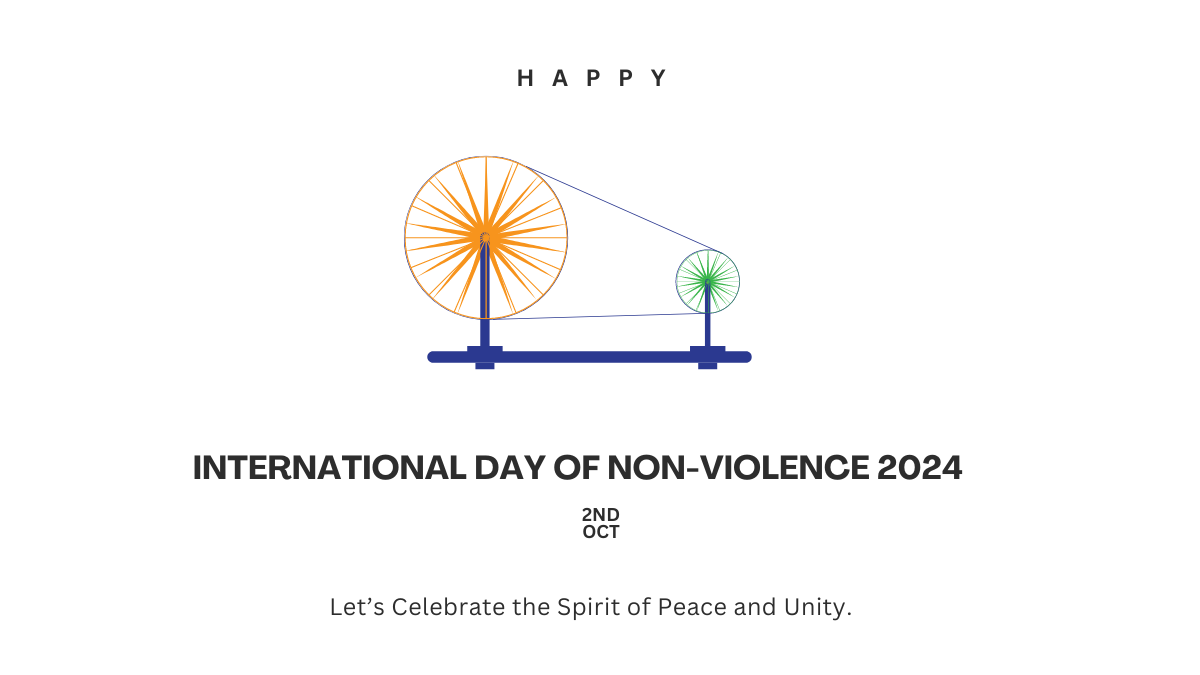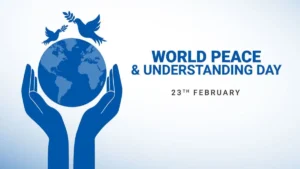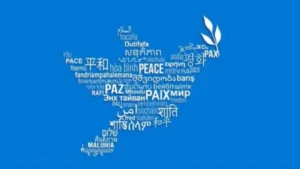The United Nations observes the International Day of Non-Violence annually on October 2nd, coinciding with the birthday of Mahatma Gandhi, the revered leader of India’s independence movement and a pioneering figure in the philosophy of non-violent resistance. This observance was established through the General Assembly resolution A/RES/61/271 on June 15, 2007, with the support of an impressive 140 co-sponsors.
Core Objectives
The day serves two primary purposes:
- To disseminate the message of non-violence through education and public awareness
- To reaffirm the universal relevance of non-violence principles
When introducing the resolution, India’s Minister of State for External Affairs, Mr. Anand Sharma, emphasized the universal respect for Gandhi and the enduring relevance of his philosophy. He quoted Gandhi’s powerful words: “Non-violence is the greatest force at the disposal of mankind. It is mightier than the mightiest weapon of destruction devised by the ingenuity of man.”
The Philosophy of Non-Violence
Definition and Principles
Non-violence, also known as non-violent resistance, is a principle that rejects the use of physical violence to achieve social or political change. Often characterized as “the politics of ordinary people,” this form of social struggle has been embraced globally in numerous campaigns for social justice.
Key Concepts
- Power Dynamics: A fundamental tenet of non-violence theory is that rulers’ power depends on the population’s consent. Non-violent movements seek to undermine this power by withdrawing consent and cooperation.
- Beyond Pacifism: While often used synonymously with pacifism, non-violence has evolved since the mid-twentieth century. Many social change movements have adopted the term and its principles beyond the context of war opposition.
Categories of Non-Violent Action
Non-violent action typically falls into three main categories:
1. Protest and Persuasion
This category encompasses public acts of peaceful opposition or encouragement, including:
- Organized marches
- Vigils
- Public speeches
- Demonstrations
2. Non-Cooperation
This involves the deliberate withdrawal of social, economic, or political cooperation, such as:
- Boycotts
- Strikes
- Civil disobedience
- Tax resistance
3. Non-Violent Intervention
These are more direct methods that disrupt established systems:
- Peaceful blockades
- Occupations
- Creation of parallel social institutions
- Overloading of administrative systems
Gandhi’s Legacy of Non-Violence
Life and Leadership
Mahatma Gandhi’s commitment to non-violence remained unwavering throughout his life, even in the face of:
- Oppressive conditions
- Seemingly insurmountable challenges
- Violent opposition
Historical Impact
Gandhi’s non-violent approach led India to independence and inspired civil rights movements worldwide. His methodology included:
- Civil Disobedience: The historic Salt March of 1930 exemplified his approach to peaceful protest
- Philosophical Foundation: His belief that “just means lead to just ends”
- Strategic Thinking: Understanding that using violence to achieve a peaceful society was inherently contradictory
Enduring Philosophy
Gandhi’s core teachings emphasized:
- Rejection of violence and hatred in the fight for freedom
- The power of peaceful resistance
- The importance of maintaining moral high ground
Contemporary Relevance
In today’s world, Gandhi’s principles of non-violence continue to:
- Inspire social justice movements
- Provide alternatives to violent conflict resolution
- Demonstrate the effectiveness of peaceful protest
Summary of the News
| Summary/Static | Details |
| Why this in news? |
|




 Central Excise Day 2026: Why 24 February...
Central Excise Day 2026: Why 24 February...
 World Peace and Understanding Day 2026: ...
World Peace and Understanding Day 2026: ...
 International Mother Language Day 2026: ...
International Mother Language Day 2026: ...








